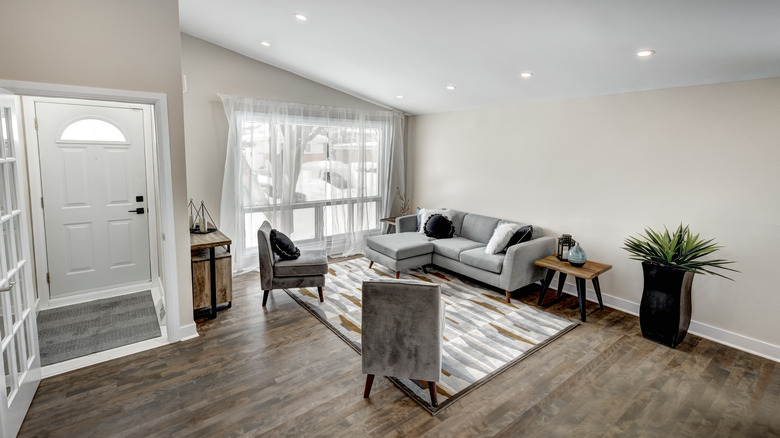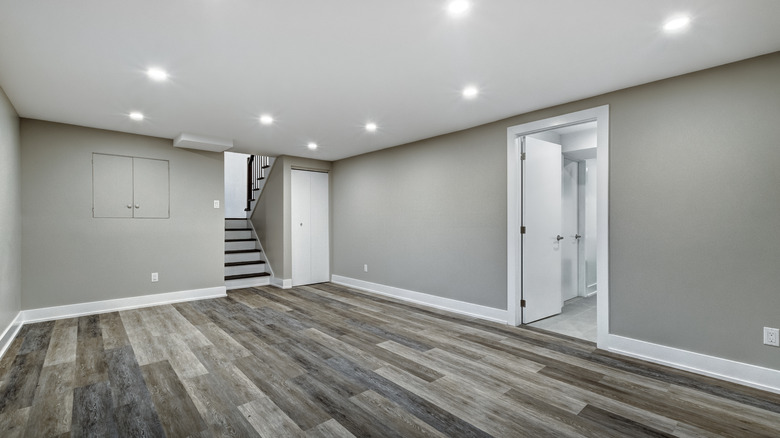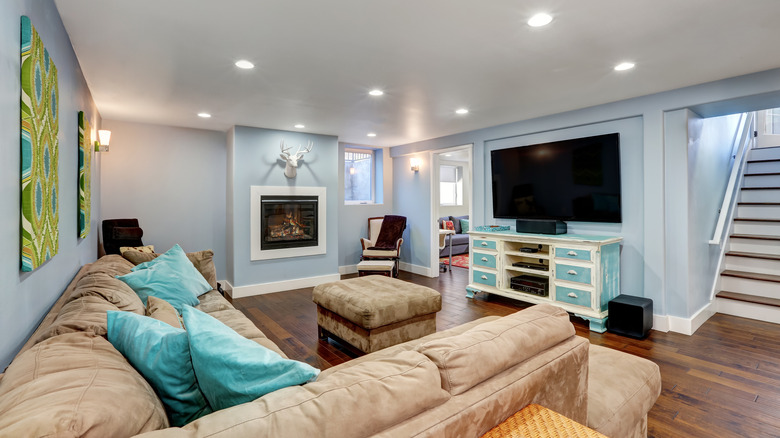3 Pointers For Converting Your Basement Into A Legal Apartment
As a homeowner, there are various ways to make money from your property. Some of these include renting out your backyard, room, or entire basement to people looking for a place to live. Basement living has significantly grown in popularity because it is an affordable way for renters to have their own space. From the homeowner's perspective, renting out a basement also has benefits, like the extra income that one can expect. There is also an increase in the value of the home since it is another finished, livable space, says Advantage Contracting.
But there are also downsides to renting it out as an apartment, such as reduced privacy for the family and maintaining the space and rental process for the tenants. This is why it's important to be sure of the full picture before you start leasing out your basement. If this is something you're considering, here are three pointers to guide you through the journey of converting your basement into a legal apartment.
1. Find out the requirements
Before converting your basement into an apartment, you need to find out if your home meets the state, county, and municipality requirements. According to the NYC Housing Preservation & Development, for example, a basement can be rented in a one-family home and meets certain conditions like a ceiling height of at least 7 feet and a minimum of one window in each room. If you meet the requirements, then you can proceed with completing your legal obligations like permits, tax permissions, insurance, and others. Keep in mind that getting connected with your local authorities, homeowner's association, insurance agent, and others will be essential throughout the entire process.
Adhering to the legal requirements is crucial not only to be on the right side of the law but for the health and safety of the occupants. Poor ventilation, inadequate lighting, carbon monoxide poisoning, and risky exits in the case of a fire are some possible dangers they can face (via NYC Housing Preservation & Development).
2. Determine the costs
Renting out your basement can be a great source of income, but it requires a significant investment. When converting your basement into a legal apartment, you need to determine the costs and set your budget. This will help you figure out if it is worth the investment and how long it will take you to start seeing a return, says Budget Dumpster. You must determine the level of financial investment this project will take and if you can wait for however long it takes to reap the rewards.
Your budget will depend on how much work is needed to achieve the finished product. Remodeling or full conversion? Adding amenities like a bathroom or kitchen? It can be anywhere from $10,000 to $75,000, states Budget Dumpster. Livability is vital, so you shouldn't skimp on making that happen, per HGTV. If you provide a furnished space to your tenants, your budget will also factor in items like a bed and dresser.
3. Make it livable
When you're good to go regarding the legal and financial aspects, you can focus on the tenant experience! Make your basement livable and also attractive to anyone interested in renting it. There should be adequate space — from the living area to the bathroom — and proper flooring, ventilation, lighting, soundproofing, electricity, and plumbing. Vinyl and concrete are the top choices for flooring, while dehumidifiers and fans are great ways to ventilate a basement.
It doesn't have to feel like a basement, so find ways to make it feel cozy and comfortable. Go Downsize advises painting with light colors, maintaining good airflow, and maximizing all the natural light. You can also try bold things like bold art pieces or plants with an accent wall. After it's ready to go, invest in capturing it accurately with quality photos so you can list it on rental sites or temporary accommodation platforms like Airbnb, advises Budget Dumpster.



